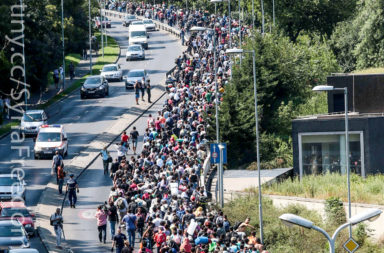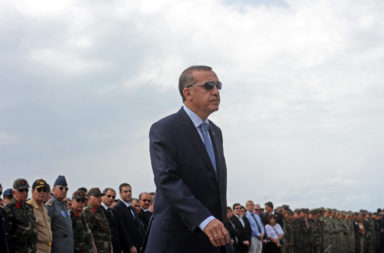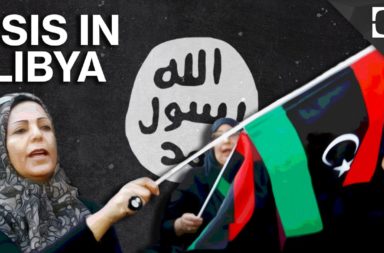Turkish President Recep Tayip Erdogan has continued to feel the ire of the international community, after encroaching on freedom of the press, multiple times in recent weeks.
On Saturday, there were protests in the streets of Istanbul in response to raids ordered on the offices of newspaper ‘Zaman’. The newspaper has long been an enemy of the President’s, noted for its links to one of his chief political enemies, American based cleric Fetullah Gulen. As police used tear gas and rubber bullets to disperse crowds of hundreds of protesters, Reporters Without Borders issued a statement that this latest move brought the country “from authoritarianism to all out despotism”.
This is only one of many recent events to embroil Erdogan, with his decision to stand defiantly in the face of an order by the Constitutional Court only weeks ago.
The decision by the court that the detention of two other Turkish newspaper journalists that had previously been accused of spying was unconstitutional, and that they should be released immediately was responded to by the President, with the warning that he will neither “respect” nor “obey” their decision.
The editor in chief, Can Dundar and Ankara bureau chief Erdem Gul for newspaper “Cumhuriyet” had been jailed since their arrest in November. Their release was greeted warmly, with friends and well-wishers waiting outside Silivri prison in Istanbul to greet the pair last week.
The imprisonment of the journalists had drawn widespread criticism from the international community who already viewed the move as an attempt to silence dissidents in a state that has long been riddled with such problems.
In response to the decision of the court, Erdogan has stated that he will remain silent on the issue – a feat he has already proved incapable of undertaking. Speaking to the media after the decision he argued, “This has nothing to do with press freedom. This is a case of spying”. The President had himself laid the charges against these journalists, reflecting the gravity of the matter for the ailing leader.
The spying alleged to have taken place involved the publication of video footage by Cumhuriyet, which claimed to depict the Turkish spy agency MIT helping to send weapons to fighters associated with Islamic State in Syria.
Yet despite their release, the controversy surrounding the journalist’s case has continued to plague the government, with its public prosecutor forcing an independent Turkish TV channel to cancel its interview with Dundar and Gul mid-broadcast. The official reason given for this was that the journalists were airing “terrorist propaganda”, disseminating views that supported the Kurdistan Workers’ Party and the Kurdistan Communities Union.
Defending the decision to broadcast the interview in the first place, the general coordinator for the channel argued, “In Turkey, everything contrary to the official view is tossed into the terrorism bag. This was clearly a political decision”. The channel (IMC) continued the broadcast on satellite TV, with its news coordinator arguing “the situation of freedom of the press and freedom of expression in Turkey is miserable”.
Indeed, these journalists appear to have a point. These recent arrests are merely two among many with over 1,000 journalists in the past five years facing trial and judicial control for defaming or denigrating the President. Kerim Balci, one such victim who was forced to flea the country before such charges were laid against him, has claimed that these charges reflect the President’s desire to centralize power into an “effective dictatorship”.
The former editor of prominent domestic magazine the Turkish Review had fled to London in October, reporting that he had heard he was on a blacklist within the Turkish police force. The blacklist indicated that he was likely to be arrested, along with a number of other dissidents in the near future. The blacklist was made public by a twitter account associated with government sources. Although Balci has argued that this account was unlikely to belong to a real person, it was evident that its use was a directive from sources close to the President, marking the gravity of the situation for dissidents.
Balci appears to be only one among many, and yet he laments the inability of his country to voice their concerns. Yet it is certainly possible to understand why this has not yet happened.
As the war in Syria continues to cause displaced persons to arrive in Turkey by the million, and with a simultaneous war with ISIS waging on its border, Erdogan has been forced to act decisively. Certainly, many public citizens have expressed concerns about the future ramifications of the President’s actions. Yet, he appears more than capable of retaining his popularity while undertaking such measures.
Indeed, in a snap election called in November last year, Erdogan increased his electability with almost 50% of voters returning his governing party, the Justice and Development Party to a decisive victory only several months after the previous election.
Erdogan, the man who has been the country’s leader since 2002, has been increasingly moving to centralize power. The manner in which he has done this has raised alarm bells among international observers, with some remarking that this bears a strikingly similar resemblance to someone looking to silence dissidents.
Yet at the same time, voters continue to remember the good that he has done for the country, forgiving these potential signs of executive overreach with a clear understanding of the good he has done for the economy, the nation’s relationship with Europe, and for its relations with the Kurdish minority in the state.
Yet his handling of critics of the state continues to trouble the leader. The Constitutional Court remains one of the only state institutions in the country, not under the control of President Erdogan. Indeed, this most recent decision was made by a majority of 12, with only three dissenting judges.
Moreover, as Erdogan attempts to move the state towards a presidential system with himself at the helm, the actions of the Constitutional Court will be seen as an important tool in the fight against this. Their strength has been observed in their continued ability to overrule controversial government decisions, including the notable ruling in 2014 that determined the President’s ban on website YouTube to be unconstitutional. And this decision, followed an earlier decision to forbid Erdogan from doing the same for micro-blogging page Twitter.
These moves have been welcomed by advocates of free speech, international observers and news outlets alike. Yet as the President continues to respond to such decisions, by making aggressive political attacks, it remains to be seen how his country will respond.
The release of these prisoners was welcomed by many. Yet with the public returning Erdogan to power, despite such controversial decisions, it is unclear what most weighs on the minds of voters. The Turkish people have been faced with significant challenges in recent times. It is understandable that their response has been far from predictable. Yet as an increasing number of forces begin to way on the leader, it will be interesting to see how he chooses to respond. One thing is clear though: for now, Mr Dundar and Mr Gul can enjoy some much deserved time with the family.




